
Find A Professional
More Items From Ergsy search
-

What is a subunit vaccine?
Relevance: 100%
-

What are the different types of vaccines?
Relevance: 85%
-

What steps can improve vaccine effectiveness?
Relevance: 74%
-

Can everyone receive vaccines?
Relevance: 74%
-

Are vaccines safe?
Relevance: 69%
-

How effective is the flu vaccine?
Relevance: 68%
-
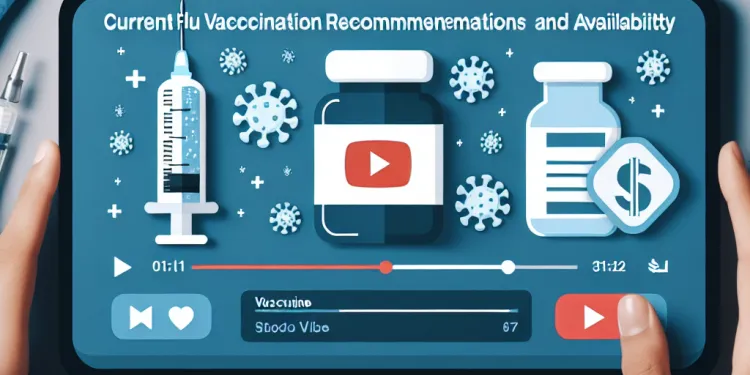
Current Flu Vaccination Recommendations and Availability
Relevance: 67%
-

What are vaccines and how do they work?
Relevance: 67%
-

Can vaccines cause the diseases they protect against?
Relevance: 67%
-

What is a live-attenuated vaccine?
Relevance: 64%
-
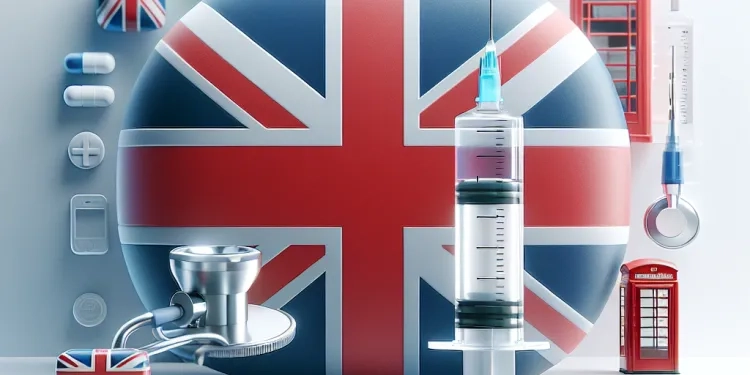
What if I'm not eligible for a free flu vaccine, can I still get vaccinated?
Relevance: 62%
-
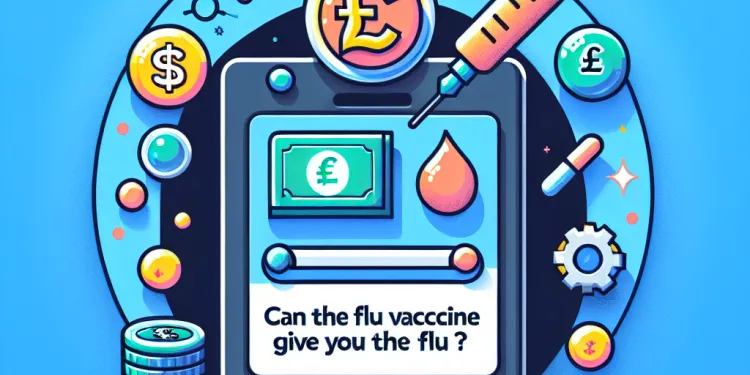
Can the flu vaccine give me the flu?
Relevance: 62%
-
Does the flu vaccine protect against COVID-19?
Relevance: 62%
-

Children's Vaccination Schedule
Relevance: 61%
-

Is the flu vaccine free for everyone in the UK?
Relevance: 61%
-

How does vaccination affect measles rates?
Relevance: 61%
-

How do vaccines work?
Relevance: 61%
-
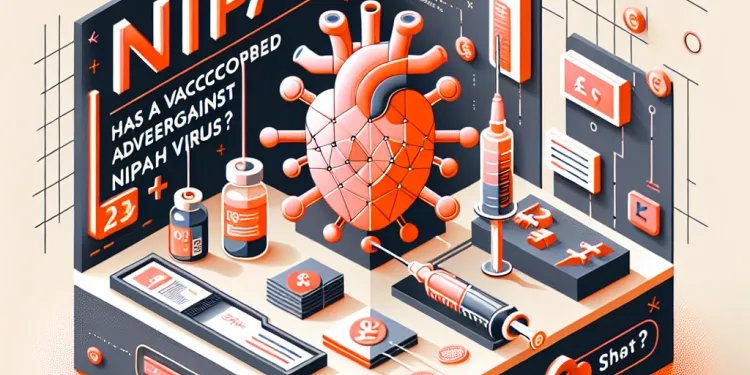
Has a vaccine been developed against Nipah Virus?
Relevance: 59%
-

When is the best time to get the flu vaccine?
Relevance: 58%
-

Why do vaccinated people sometimes still get sick?
Relevance: 58%
-
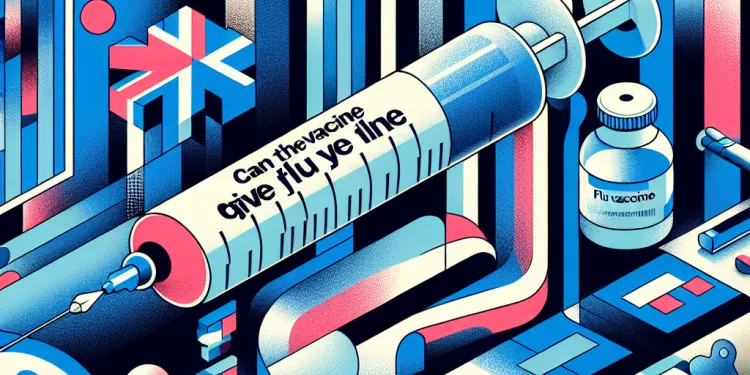
Can the flu vaccine give you the flu?
Relevance: 58%
-

Why do some vaccines require multiple doses?
Relevance: 58%
-

Surge in HPV Vaccination Rates Among Young Women in the UK
Relevance: 57%
-

Why are vaccines important?
Relevance: 57%
-
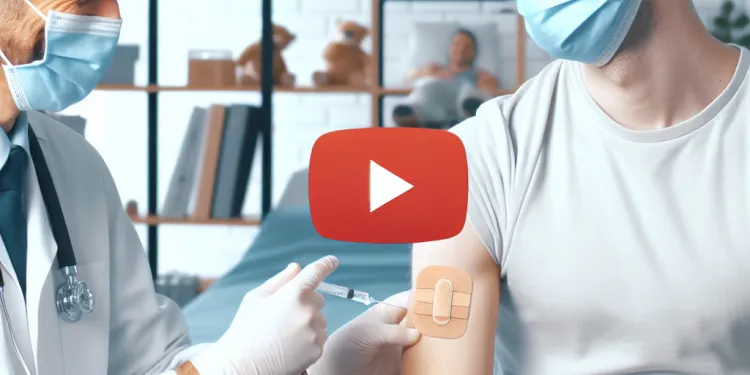
Can adults receive the MMR vaccine?
Relevance: 56%
-

Can pregnant women get the flu vaccine?
Relevance: 56%
-

Can children receive the flu vaccine as a nasal spray?
Relevance: 56%
-

Who should get the HPV vaccine?
Relevance: 55%
-

How long does it take for the flu vaccine to become effective?
Relevance: 55%
-

Do I need any vaccine injections for EU countries?
Relevance: 54%
-

What if I have an egg allergy, can I still get the flu vaccine?
Relevance: 54%
-

Is there a vaccine for the Zika virus?
Relevance: 54%
-

Are vaccines linked to autism?
Relevance: 53%
-

How effective is the MMR vaccine?
Relevance: 53%
-
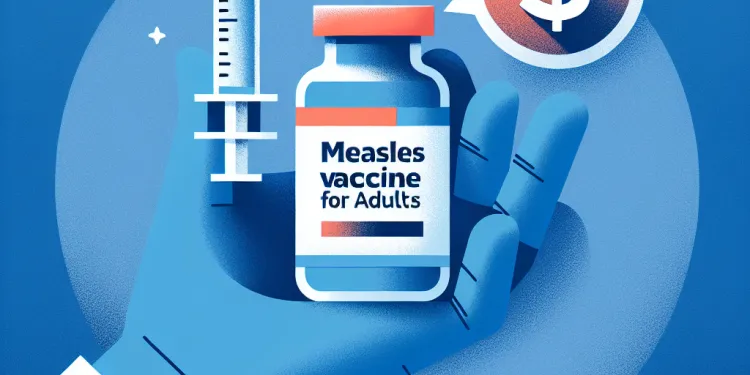
Can the measles vaccine be given to adults?
Relevance: 52%
-

What is a vaccine?
Relevance: 52%
-

Do vaccines work against new COVID-19 variants?
Relevance: 52%
-

How do I book an appointment for the flu vaccine?
Relevance: 51%
-

Who should get the flu vaccine in the UK?
Relevance: 50%
-

Flu vaccinations for people with a learning disability
Relevance: 48%
What is a Subunit Vaccine?
Vaccination represents one of the most effective ways to prevent infectious diseases, and among the various types of vaccines, subunit vaccines play a crucial role. For a UK audience interested in understanding this form of vaccination, it's essential to explore what subunit vaccines are, how they function, and their significance in public health.
Understanding Subunit Vaccines
Subunit vaccines are a type of vaccine that include only the essential antigens of a virus or bacterium necessary to stimulate an immune response. Unlike whole-cell vaccines, which use entire viruses or bacteria, subunit vaccines contain only specific pieces of the pathogen, such as proteins or sugars. These pieces are enough to provoke the desired immune response, without introducing the entirety of the organism.
Mechanism of Action
The immune system works by recognising and targeting foreign substances, known as antigens. Subunit vaccines include selected antigens that can best trigger an immunity response by simulating a part of the virus or bacteria against which the body can defend itself. The immune system is thereby trained to recognize these antigens in the future, allowing for a speedy and effective response if exposed to the actual infectious agent.
Advantages of Subunit Vaccines
One of the main advantages of subunit vaccines is their safety profile. Since they do not contain live components of the pathogen, there is no risk of causing disease in the vaccinated individual. This makes them particularly suitable for people with compromised immune systems and those who cannot receive live vaccines. Additionally, subunit vaccines are typically stable and can often be stored under normal refrigeration conditions, which is beneficial for distribution and storage.
Examples and Applications
Subunit vaccines are used widely and include vaccines for diseases like hepatitis B and human papillomavirus (HPV). These vaccines are fundamentally important for public health strategies worldwide, including in the UK, where vaccination programs are critical for preventing outbreaks and ensuring population immunity.
Future Prospects
Research continues to develop new subunit vaccines, particularly with technologies like recombinant DNA technology and protein engineering. The COVID-19 pandemic has further spurred interest and innovation in this field, with efforts to produce vaccines that are effective and safe. Subunit vaccines are likely to remain a vital component of global immunization efforts.
Conclusion
Subunit vaccines represent a safe and targeted approach to preventing infectious diseases. Their design, which utilizes only essential antigenic parts of a pathogen, provides a robust immune response while minimizing side effects. As research progresses, these vaccines will continue to bolster public health initiatives, both in the UK and globally, contributing significantly to the ongoing battle against infectious diseases.
What is a Subunit Vaccine?
A vaccine is a way to stop people from getting sick. Subunit vaccines are one type of vaccine. It's important to know what subunit vaccines are and why they help keep us healthy.
Understanding Subunit Vaccines
Subunit vaccines have only small parts of a virus or bacteria. These small parts are called antigens. Other vaccines might use the whole virus or bacteria, but subunit vaccines do not. The antigens help the body learn how to fight the sickness without making you sick.
How Do Subunit Vaccines Work?
Our body has a defence system called the immune system. Subunit vaccines show the immune system what the virus or bacteria looks like. The body then learns to fight it if it sees it again. This keeps us safe from getting sick.
Why Are Subunit Vaccines Good?
Subunit vaccines are safe because they don't have the live virus or bacteria. This means you won't get sick from the vaccine. They are good for people with weak immune systems. You can store them in a fridge, making them easy to keep and use.
Examples of Subunit Vaccines
Some subunit vaccines help prevent diseases like hepatitis B and HPV. These vaccines are very important. They help keep people healthy and stop diseases from spreading.
Looking Ahead
Scientists are working on making even better subunit vaccines. They are using new technologies to help. The COVID-19 pandemic made this even more important. Subunit vaccines will keep helping us stay safe in the future.
Conclusion
Subunit vaccines are safe and work well. They use small parts of a virus or bacteria to protect us. As we learn more, these vaccines will keep helping people in the UK and around the world stay healthy.
Frequently Asked Questions
What is a subunit vaccine?
A subunit vaccine is a type of vaccine that includes only the components, or subunits, of a pathogen that stimulate a protective immune response, rather than the whole pathogen.
How does a subunit vaccine work?
Subunit vaccines work by presenting specific antigens to the immune system, which then recognizes these antigens as foreign and mounts an immune response without exposing the body to the entire pathogen.
What are the advantages of subunit vaccines?
The advantages of subunit vaccines include a reduced risk of side effects and better safety profiles, since they do not contain live components of the pathogen.
What are the disadvantages of subunit vaccines?
The disadvantages include potentially lower immunogenicity, meaning they might need adjuvants or multiple doses to elicit a strong immune response.
Are subunit vaccines safe?
Yes, subunit vaccines are generally considered very safe as they contain only parts of the pathogen, reducing the risk of adverse reactions.
Can subunit vaccines cause the disease they protect against?
No, because subunit vaccines do not contain live pathogens, they cannot cause the disease they are designed to protect against.
What diseases can be prevented with subunit vaccines?
Subunit vaccines are used to prevent diseases such as hepatitis B, HPV, and pertussis, among others.
How are subunit vaccines produced?
Subunit vaccines are produced by isolating a specific component of the pathogen, such as a protein, and then using recombinant DNA technology to produce it in large quantities.
Do subunit vaccines require adjuvants?
Often, yes. Adjuvants, which enhance the immune response to the vaccine, may be needed to ensure sufficient immunogenicity in subunit vaccines.
How does a subunit vaccine differ from a whole-cell vaccine?
While whole-cell vaccines use inactivated or live attenuated pathogens, subunit vaccines only use specific pieces of the pathogen, such as proteins or polysaccharides.
What is a protein subunit vaccine?
A protein subunit vaccine is a type of subunit vaccine that uses one or more proteins from the pathogen to induce an immune response.
What are examples of protein subunit vaccines?
Examples include vaccines for hepatitis B and human papillomavirus (HPV).
How long does protection from a subunit vaccine last?
The duration of protection can vary depending on the disease and the vaccine, and booster doses may be needed for long-term immunity.
Can subunit vaccines be used with other vaccines?
Yes, subunit vaccines can often be administered alongside other vaccines as part of combination vaccination programs.
What are polysaccharide subunit vaccines?
Polysaccharide subunit vaccines include polysaccharide molecules from the surface of bacteria and are used to protect against diseases like pneumonia and meningitis.
Are subunit vaccines suitable for people with weakened immune systems?
Yes, subunit vaccines are generally considered safe and suitable for people with weakened immune systems because they do not contain live components.
Why might multiple doses of a subunit vaccine be necessary?
Multiple doses may be required to build and maintain a strong and lasting immune response, as subunit vaccines can be less immunogenic than whole-cell vaccines.
What is the difference between a subunit vaccine and a conjugate vaccine?
A conjugate vaccine is a type of subunit vaccine where polysaccharides from the pathogen are linked to a protein to enhance the immune response, often used in vaccines for young children.
Can subunit vaccines be used for pandemics?
Yes, subunit vaccines can be developed for pandemic pathogens, and have been explored for diseases such as COVID-19 due to their safety profile and targeted immune response.
What role do adjuvants play in subunit vaccines?
Adjuvants help enhance the immune response to subunit vaccines, potentially improving their effectiveness and reducing the number of doses needed.
What is a subunit vaccine?
A subunit vaccine is a type of medicine that helps keep us from getting sick. It is made from small parts of a virus or bacteria instead of the whole germ. These small parts help our bodies learn how to fight the real germ if we ever meet it later.
If you find reading hard, you can use tools that read the text out loud. You can also ask someone to explain it to you.
A subunit vaccine is a type of medicine that helps protect you from getting sick. It uses only small parts of a germ that help your body fight off the illness, instead of the whole germ.
How does a subunit vaccine work?
A subunit vaccine helps keep you healthy.
It has tiny pieces of germs that make you sick. But don't worry, it's safe!
Your body learns to fight these pieces. So, if the real germ comes, your body knows how to fight it off.
Tips to understand better:
- Ask an adult to explain it to you.
- Look at pictures of how vaccines work.
- Watch videos about vaccines for kids.
Subunit vaccines help the body fight germs. They show the body tiny pieces of the germ called antigens. The body sees these pieces and knows they don't belong. The body then gets ready to fight the germ if it comes back. This way, the person does not get the whole germ, just the important part to make them strong against it. Using pictures or videos can help explain this better.
What are the good things about subunit vaccines?
Here are some reasons why subunit vaccines are helpful:
- Safe: Subunit vaccines use only a small part of a germ, which makes them safer.
- Fewer side effects: These vaccines usually have fewer side effects, like fever or soreness.
- Works well: They still help your body fight off the germs.
To learn more, you can:
- Ask a doctor or nurse. They can explain it to you.
- Use pictures or videos. They can help you understand better.
- Talk with a friend or family member who can help explain.
Subunit vaccines are safer because they use only small parts of a virus or bacteria. This means they are less likely to cause side effects and are considered safer.
What are the downsides of subunit vaccines?
Subunit vaccines have some downsides. Here are a few:
- They might not work as well on their own. Often, you need a booster shot to help them work better.
- They can be more expensive to make than other types of vaccines.
- You might need an adjuvant (an extra ingredient) to help the vaccine work well.
To learn more, you can:
- Ask your doctor or nurse for more information.
- Watch videos or use apps that explain vaccines in simple words.
The downsides can be that they might not work as well on their own. They might need help from special ingredients or more than one dose to make your body's defenses strong.
Is the subunit vaccine safe?
Yes, subunit vaccines are very safe. They only use small parts of the germ, which makes them safer and less likely to cause bad reactions.
Can subunit vaccines make you sick with the disease they are supposed to stop?
No, subunit vaccines cannot make you sick with the disease. These vaccines only use small pieces of the germ, not the whole germ. This helps your body learn to fight the disease without getting you sick.
If you find reading hard, try using tools like text-to-speech software. This will read the words out loud to you. Also, you can ask someone to help explain the information.
No, subunit vaccines cannot make you sick with the disease. They do not have live germs in them.
What sicknesses can subunit vaccines stop?
Subunit vaccines help you stay healthy by stopping some sicknesses.
Here are some sicknesses that subunit vaccines can stop:
- Hepatitis B (a liver sickness)
- HPV (a virus that can cause warts and other problems)
- Whooping cough (a bad cough)
- Shingles (a painful rash)
Using picture charts can help you understand how vaccines work. Audiobooks can be useful too.
Subunit vaccines help stop people from getting sick. They protect us from illnesses like hepatitis B, HPV, and whooping cough (also called pertussis).
How do we make subunit vaccines?
Subunit vaccines are a type of medicine that helps protect us from getting sick.
To make these vaccines, scientists take a small piece of a virus or bacteria. This piece is called a "subunit."
They use this subunit to make the vaccine. This helps your body learn how to fight the virus without making you sick.
For extra help, you can use pictures and videos to understand this better. Also, talking to your doctor or nurse can help you learn more.
Subunit vaccines are made by taking a small part of a germ, like a protein, and then using special technology to make lots of it.
Do Subunit Vaccines Need Helpers?
Subunit vaccines use tiny parts of a virus or bacteria to help protect you. These parts are very small and might need a little help to work well. That help comes from something called an adjuvant.
An adjuvant is like a helper that makes the vaccine work better. It helps your body’s defense system (called the immune system) to fight off the real virus or bacteria if you ever meet it.
Tools like pictures or videos can help you understand how vaccines and adjuvants work. You can also ask a grown-up or a doctor to explain it to you.
Yes, vaccines often need something called adjuvants. These help the body make a stronger immune response when you get the vaccine. Adjuvants help some vaccines work better.
What is the difference between a subunit vaccine and a whole-cell vaccine?
A subunit vaccine uses only parts of a virus or bacteria to teach your body to fight it. It does not have the whole germ.
A whole-cell vaccine uses the entire virus or bacteria, but it is not alive. This helps your body learn to protect you.
If reading is hard, you can:
- Ask someone to read with you.
- Use pictures to help understand.
- Listen to the text read aloud on a computer or phone.
Whole-cell vaccines use germs that are killed or made weak. Subunit vaccines use small parts of the germ, like proteins or sugars.
What is a protein subunit vaccine?
A protein subunit vaccine is a type of medicine that helps protect you from getting sick. It uses tiny parts of a virus or bacteria to teach your body how to fight the real germs. This way, if you meet the real virus or bacteria later, your body knows how to stop it.
Here are some ways to understand vaccines better:
- Look at pictures or videos about how vaccines work.
- Ask someone to explain it to you in simple words.
- Use apps or websites that have easy-to-read information about health.
A protein subunit vaccine is a special kind of vaccine. It uses a part of the germ, called a protein, to help your body fight against it. This makes your body ready to protect you if you catch the germ later.
What are protein subunit vaccines?
A protein subunit vaccine is a type of vaccine. It uses small parts of a virus to help your body learn to fight it.
Examples of protein subunit vaccines
Here are some examples of protein subunit vaccines:
- Hepatitis B vaccine
- HPV vaccine
- Pertussis (whooping cough) vaccine
You can use pictures or videos to help understand how these vaccines work.
Ask an adult to explain or read with you if you need more help.
Examples are vaccines for hepatitis B and human papillomavirus (HPV).
How long does a subunit vaccine keep you safe?
The time a vaccine protects you can be different. It depends on the disease and the vaccine. Sometimes, you need more doses called boosters to stay protected for a long time.
Can we use subunit vaccines with other vaccines?
Yes, we can usually give subunit vaccines with other vaccines. This is called a combination vaccination program.
What are polysaccharide subunit vaccines?
Let’s talk about something called a "polysaccharide subunit vaccine". This is a type of medicine that helps protect us from getting sick. It is made from a small part of a germ called a "polysaccharide". Our body learns to fight the germ by seeing this little piece.
Here’s how it works:
- The vaccine gives our bodies a safe piece of a germ.
- Our body practices how to fight this little piece.
- If the real germ comes, our body knows how to fight it!
Some tools that can help you understand better:
- Pictures: Look at pictures of germs and vaccines.
- Videos: Watch videos that show how vaccines work.
- Ask for help: Talk to a parent or teacher if you have questions.
Polysaccharide subunit vaccines are a type of medicine that helps protect our bodies from getting sick. They use special sugars taken from the outside of bacteria. These vaccines help stop illnesses like pneumonia (a sickness of the lungs) and meningitis (a sickness of the brain).
Using big pictures or diagrams can help you understand how vaccines work. Also, audio tools can read the text out loud, making it easier to follow along.
Can people with weak immune systems use subunit vaccines?
Yes, these types of vaccines are usually safe for people who have weak immune systems because they do not have any live parts in them.
Why do we need more than one dose of a subunit vaccine?
A subunit vaccine helps the body learn how to fight germs without using the whole germ. Sometimes, one dose isn't enough to teach the body to fight the germs well. That's why we might need more than one dose.
Think of it like learning to ride a bike. You might need to practice a few times before you get really good at it. Getting more doses helps the body get really good at fighting the germs.
Here are some ways to help understand:
- Ask someone to explain the vaccine to you.
- Watch videos about how vaccines work.
- Draw pictures to show how the vaccine helps the body.
It might take more than one dose of the vaccine to make your body strong against germs. This is because some vaccines need extra help to protect you well.
How is a subunit vaccine different from a conjugate vaccine?
A subunit vaccine uses a small part of a germ to teach the body to fight it.
A conjugate vaccine connects a tiny piece of the germ to a helper to make it stronger so the body can learn to fight it better.
To remember this, you can use pictures or videos that show how these vaccines work. Ask someone to explain it to you in simple words if you need more help.
A conjugate vaccine is a special kind of vaccine. It helps protect people from getting sick. This vaccine uses small parts of the germ, called polysaccharides, that are attached to a protein. This makes the vaccine work better. It is often used for young children to help their immune system fight off diseases.
Can we use subunit vaccines to stop a pandemic?
A pandemic is when a disease spreads to many countries.
A vaccine helps protect people from getting sick.
Subunit vaccines use small parts of a virus or bacteria to teach the body to fight the disease.
Scientists think subunit vaccines can help with pandemics.
These vaccines might be safer and quicker to make.
If you find reading hard, try:
- Using text-to-speech tools to listen to the words.
- Looking at pictures or videos about subunit vaccines.
- Asking someone to explain it to you.
Yes, we can make subunit vaccines for illnesses that cause pandemics. Scientists have looked at using them for diseases like COVID-19 because they are safe and help your body fight the disease.
What do helpers in subunit vaccines do?
Helpers in vaccines are special ingredients. They help the vaccine work better. This makes the body stronger against germs.
Subunit vaccines have tiny parts of germs. Helpers make sure the body sees these parts clearly. This way, the body learns how to fight the real germs.
Tools like picture books or videos can help you learn more about vaccines. Ask a friend or a teacher if you need help.
Adjuvants are helpers that make vaccines work better. They help your body fight germs. This means vaccines might need fewer shots to keep you safe.
Useful Links
- Ergsy carfully checks the information in the videos we provide here.
- Videos shown by Youtube after a video has completed, have NOT been reviewed by ERGSY.
- To view, click the arrow in centre of video.
- Most of the videos you find here will have subtitles and/or closed captions available.
- You may need to turn these on, and choose your preferred language.
- Go to the video you'd like to watch.
- If closed captions (CC) are available, settings will be visible on the bottom right of the video player.
- To turn on Captions, click settings .
- To turn off Captions, click settings again.
More Items From Ergsy search
-

What is a subunit vaccine?
Relevance: 100%
-

What are the different types of vaccines?
Relevance: 85%
-

What steps can improve vaccine effectiveness?
Relevance: 74%
-

Can everyone receive vaccines?
Relevance: 74%
-

Are vaccines safe?
Relevance: 69%
-

How effective is the flu vaccine?
Relevance: 68%
-

Current Flu Vaccination Recommendations and Availability
Relevance: 67%
-

What are vaccines and how do they work?
Relevance: 67%
-

Can vaccines cause the diseases they protect against?
Relevance: 67%
-

What is a live-attenuated vaccine?
Relevance: 64%
-

What if I'm not eligible for a free flu vaccine, can I still get vaccinated?
Relevance: 62%
-

Can the flu vaccine give me the flu?
Relevance: 62%
-
Does the flu vaccine protect against COVID-19?
Relevance: 62%
-

Children's Vaccination Schedule
Relevance: 61%
-

Is the flu vaccine free for everyone in the UK?
Relevance: 61%
-

How does vaccination affect measles rates?
Relevance: 61%
-

How do vaccines work?
Relevance: 61%
-

Has a vaccine been developed against Nipah Virus?
Relevance: 59%
-

When is the best time to get the flu vaccine?
Relevance: 58%
-

Why do vaccinated people sometimes still get sick?
Relevance: 58%
-

Can the flu vaccine give you the flu?
Relevance: 58%
-

Why do some vaccines require multiple doses?
Relevance: 58%
-

Surge in HPV Vaccination Rates Among Young Women in the UK
Relevance: 57%
-

Why are vaccines important?
Relevance: 57%
-

Can adults receive the MMR vaccine?
Relevance: 56%
-

Can pregnant women get the flu vaccine?
Relevance: 56%
-

Can children receive the flu vaccine as a nasal spray?
Relevance: 56%
-

Who should get the HPV vaccine?
Relevance: 55%
-

How long does it take for the flu vaccine to become effective?
Relevance: 55%
-

Do I need any vaccine injections for EU countries?
Relevance: 54%
-

What if I have an egg allergy, can I still get the flu vaccine?
Relevance: 54%
-

Is there a vaccine for the Zika virus?
Relevance: 54%
-

Are vaccines linked to autism?
Relevance: 53%
-

How effective is the MMR vaccine?
Relevance: 53%
-

Can the measles vaccine be given to adults?
Relevance: 52%
-

What is a vaccine?
Relevance: 52%
-

Do vaccines work against new COVID-19 variants?
Relevance: 52%
-

How do I book an appointment for the flu vaccine?
Relevance: 51%
-

Who should get the flu vaccine in the UK?
Relevance: 50%
-

Flu vaccinations for people with a learning disability
Relevance: 48%